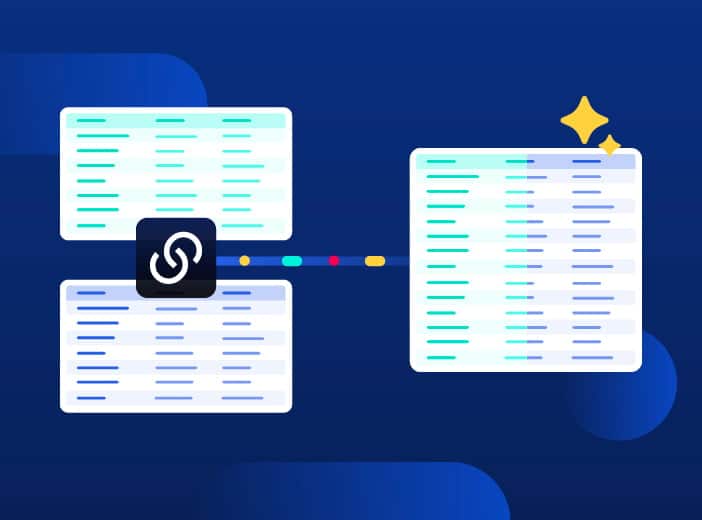Building the pillars of state-level data democratization
US states are increasingly focused on data management and sharing in order to increase efficiency, boost transparency and improve decision-making. Our blog explains the steps they should follow to successfully harness data and democratize data use.

Across the public sector, organizations understand the importance of harnessing data to boost efficiency, increase collaboration and most importantly to deliver seamless, connected services that ultimately better serve citizens. They need to democratize data so that it can be used by anyone, anywhere, without requiring specialist skills or tools.
When it comes to US state data programs, as well as efficiency, transparency and creating new services, there’s a big focus on using data to increase collaboration between different agencies. Ensuring that state employees and legislators have the right information at their fingertips results in better decision-making and more joined-up government, while eliminating duplication and waste
Making state-level data management a priority
However, delivering on this vision of seamless data sharing can be difficult. There are a large number of state agencies, all producing data and with their own systems and requirements that need to be factored into state data programs. Sharing also extends to other branches of government, such as municipalities and cities. Finally, data needs to be available to businesses and citizens, all while meeting strict standards around privacy and security.
Given these factors, it’s no surprise that data management has been a top 10 priority for CIOs since 2016, according to National Association of State Chief Information Officers (NASCIO) research. However, its 2023 report found that CIOs believe that data management is an area where they need to increase their focus.
Just 27% of states say that their governance of enterprise information management is mature, with over two-thirds (69%) at the early stages of creating and rolling out governance strategies. Demonstrating the need to go beyond technology to drive data democratization, only 16% had created formal data literacy programs for state employees. This type of training is crucial to increasing the understanding and use of data and therefore delivering data-driven government.
The need for a whole body approach to data
In many cases states are in a similar position to private sector organizations, who are also increasing their efforts to become data-driven and turn strategy into reality. Progress is accelerating however, with a growing number of states appointing Chief Data Officers (CDOs) to lead their efforts. Speaking at the 2023 NASCIO Summit, Irene Vidyanti, Washington State’s first CDO, explained the three pillars that she believes need to underpin data management:
The brain - Enterprise data strategy
To deliver results and value, the data strategy needs to support the State’s overall strategy, objectives and initiatives. That means that CDOs have to understand current and future priorities (such as becoming more sustainable or attracting new businesses) and show how data can underpin them. For example, collecting and sharing monitoring data can demonstrate the impact of measures to reduce emissions, while publishing metrics around available skills, grants and other incentives compared to other states to appeal to companies looking for locations for new offices or factories.
The central nervous system: Enterprise data platform
States produce a wide variety and enormous volume of data across different agencies. Ensuring that this can be shared internally and externally is vital. In the same way that the central nervous system receives, processes and shares sensory information, state enterprise data platforms have to be able to seamlessly collect and distribute data quickly to where it is needed. Given that different agencies may well have different technical architectures, the enterprise data platform has to create a unified ecosystem for data that integrates all information.
The immune system: Data governance
To continue the body analogy, all of this data has to be healthy – i.e. high-quality, secure and trustworthy. Data governance strategies and processes therefore act as an immune system for state-level data, ensuring that it meets strict standards around security and confidentiality, is well-documented and can be easily understood and consumed. Data governance needs to extend across the ecosystem, with consistent rules around how data is described, protected and processed between different agencies.
The hands: Intuitive data portals
Based on experience working with public sector bodies across the globe, we’d add a fourth, related pillar. Once data strategy has been set, information collected and governance rules applied, it is vital that information is shared as widely as possible with internal and external stakeholders.
That’s where data portals come in, providing the last mile of data sharing that delivers information in easy-to-use ways to everyone. In effect, data portals act as the hands of the data body, enabling action to be taken and helping realize the benefits of openness, efficiency, collaboration and innovation.
Data portals provide a tangible, centralized way of sharing data across the entire ecosystem. They help everyone, internally and externally, locate and retrieve the data they require to do their jobs, wherever it was created. Consequently they ensure that data is used and reused, driving data democratization and putting data at the heart of everything that state agencies do.
How OSBM underpins state-level data sharing
The North Carolina Office of State Budget and Management (OSBM) is the perfect example of how state-wide data sharing can work in practice. OSBM is responsible for providing objective information and analysis to ensure a balanced state budget and effective stewardship of public resources. It works collaboratively with agencies and departments across North Carolina to bring together their data and make it easily available to both internal policymakers and the wider community, both inside and outside the state. These include groups as varied as legislators, local government officials and children completing school projects.
It delivers this through its LINC open data portal, which contains over 900 datasets, covering areas as diverse as population (including census data), labor force, education and agriculture, supplied by 20 state departments. Data series go back to 1969 and project forward to 2040. Users can also compare information about North Carolina with other states, providing instant, comparative analysis around key indicators. Data continues to grow, with an ongoing outreach program with state departments and offices to bring their information onto the platform.

The latest version of LINC, built on Opendatasoft’s data portal solution, provides a nimble, powerful platform that provides data to all types of users across the state and beyond. Groups as diverse as schoolchildren and data specialists are accessing, creating and visualizing compelling data experiences and downloading data to meet their differing requirements.

At a public level this increases transparency and engagement, showing clearly what is happening in the state at a statistical level, and explaining policy decisions. Internally, government employees are able to plan more effectively, based on access to comprehensive, up-to-date information.
Increasing the state focus on data management
While many states are at the beginning of their data journey, CIOs and CDOs understand the importance of information sharing to increase efficiency, transparency, collaboration and innovation. Reliable, high-quality data needs to flow securely yet effortlessly between agencies. This requires a whole body approach – bringing together the brain (strategy), central nervous system (data platform), immune system (governance) and hands (data portal) to make data available to everyone in ways that they can easily understand and reuse, without requiring specialist skills or tools.



